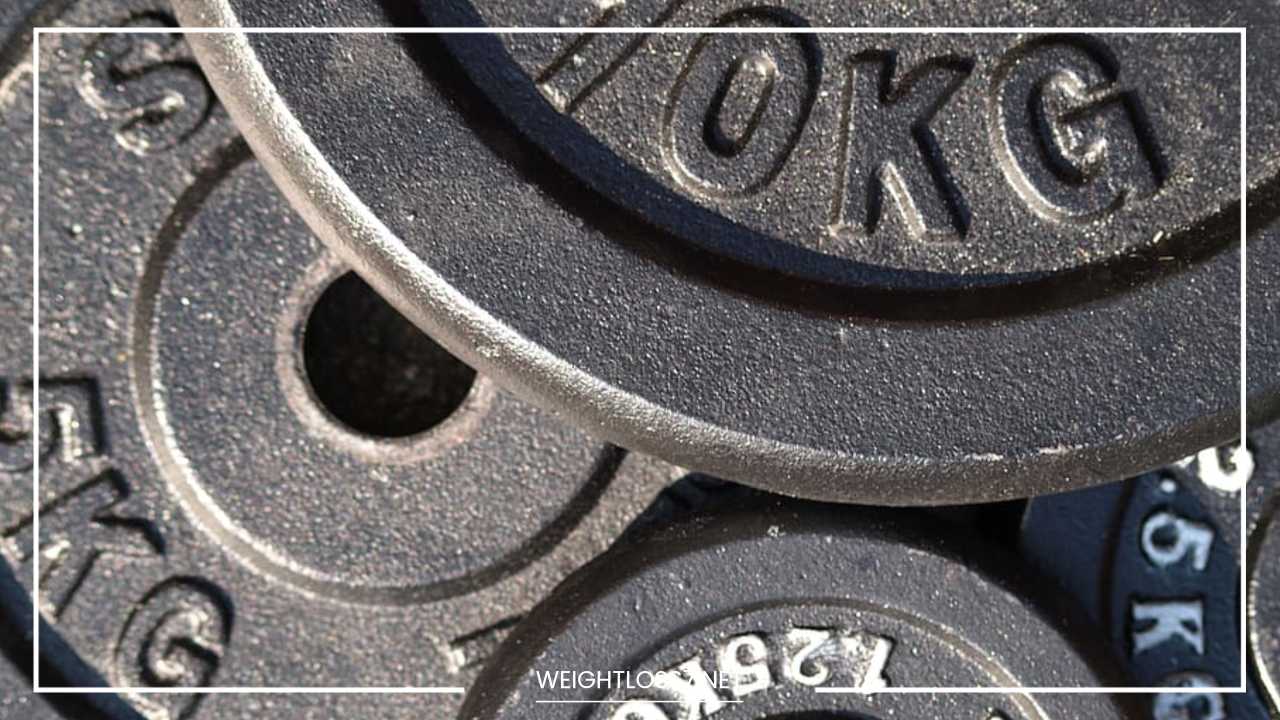Simple Weight Loss: Shed Pounds Without the Struggle

Simple Weight Loss
Shedding Pounds Simply: A Sustainable Guide to Weight Loss
In today’s world, with an endless barrage of fad diets and grueling workout routines, simple weight loss can feel like a distant dream. But what if achieving a healthy weight wasn’t about deprivation or extreme measures? Shedding pounds can be a sustainable, positive journey focused on nourishing your body and feeling your best.
This comprehensive guide explores practical strategies for simple weight loss, empowering you to take control of your health in a balanced and manageable way.
Understanding Weight Loss: Calories In vs. Calories Out
The core principle of weight loss boils down to basic math: calories in versus calories out. To lose weight, you need to create a calorie deficit, meaning you burn more calories than you consume. This doesn’t have to be drastic. A safe and sustainable approach aims for a weight loss of 1-2 pounds per week, which translates to a deficit of 500-1000 calories daily.
Building a Balanced Plate: Focus on Nutrient-Dense Foods
Instead of restrictive fad diets that leave you feeling deprived, focus on filling your plate with nutrient-dense whole foods.
These foods provide essential vitamins, minerals, and fiber to keep you feeling full and energized, while keeping calorie intake in check. Here’s a breakdown of key food groups to prioritize:
- Fruits and Vegetables: Aim for a rainbow on your plate! Fruits and vegetables are low in calories and high in fiber and water, promoting satiety and gut health. Explore a variety of colors – leafy greens, berries, citrus fruits, bell peppers, sweet potatoes – to ensure you’re getting a wide range of essential nutrients.
- Whole Grains: Opt for brown rice, quinoa, and whole-wheat bread over refined grains like white bread and pasta. Whole grains offer sustained energy, complex carbohydrates, and essential dietary fiber, which aids digestion and keeps you feeling fuller for longer.
- Lean Protein: Include protein sources like chicken, fish, beans, lentils, and tofu in every meal. Protein helps build and repair muscle tissue, curbs cravings, and boosts metabolism. Lean protein sources are essential for maintaining muscle mass, which plays a crucial role in burning calories at rest.
- Healthy Fats: Don’t fear healthy fats! Avocados, nuts, seeds, and olive oil provide essential fats for hormone regulation, cell function, and satiety. Healthy fats also enhance nutrient absorption from other foods and promote feelings of satisfaction, preventing overeating.
Simple Strategies for Sustainable Weight Loss
Here are practical tips you can incorporate into your daily routine for steady and sustainable weight loss:
- Mindful Eating: Pay close attention to hunger and fullness cues. Eat slowly, savor your food, and avoid distractions like screens while eating. This promotes mindful eating, preventing overconsumption. Put down your fork between bites, chew thoroughly, and focus on the taste and texture of your food.
- Portion Control: Use smaller plates and bowls to manage portion sizes. Pre-portion snacks into individual containers to avoid mindless munching. Visual cues play a significant role in how much we eat. Using smaller plates creates the illusion of larger portions, promoting satiety with less food.
- Drink Plenty of Water: Water keeps you hydrated, flushes toxins, and can even curb appetite. Aim for 8 glasses of water daily. Water is essential for various bodily functions, including digestion and nutrient absorption. When dehydrated, your body might send hunger signals, even when you don’t need food.
- Read Food Labels: Be informed about what you’re consuming. Pay attention to serving sizes, calorie counts, sugar content, and ingredients. Don’t be fooled by marketing claims. Focus on the actual nutritional information to make informed choices.
- Plan Your Meals: Planning meals and snacks in advance helps avoid unhealthy choices when hunger strikes. Schedule your meals and snacks throughout the day to prevent reaching a point of extreme hunger, which can lead to impulsive, unhealthy food choices.
- Limit Sugary Drinks: Sugary beverages like sodas, juices, and energy drinks are packed with empty calories and can contribute to weight gain. Opt for water, unsweetened tea, black coffee, or homemade fruit-infused water.
- Cook More at Home: Cooking at home allows you to control ingredients and portion sizes. Explore healthy recipes that tantalize your taste buds. Experiment with different flavors and cuisines to keep things interesting. Cooking at home empowers you to make healthy choices and avoid the hidden sugars, unhealthy fats, and excessive sodium often found in restaurant meals.
- Find Activities You Enjoy: Exercise doesn’t have to be a chore. Find activities you genuinely enjoy, like dancing, swimming, hiking, biking, team sports, rock climbing, or martial arts. When you enjoy your workout routine, you’re more likely to stick with it in the long run.
- Start Small, Make it Sustainable: Don’t overwhelm yourself with drastic changes. Begin with small, manageable goals you can consistently achieve. Building sustainable habits is key to long-term success. Celebrate your milestones, no matter how small. Even a one-pound weight loss or adding a 10-minute walk to your day is a victory!
- Get Enough Sleep: When sleep-deprived, your body produces more ghrelin (the hunger hormone) and less leptin (the satiety hormone), leading to increased cravings and potential weight gain. Aim for 7-8 hours of quality sleep each night. Establishing a consistent sleep schedule and practicing good sleep hygiene can significantly improve your sleep quality.
- Manage Stress: Chronic stress can disrupt hormones and lead to unhealthy eating habits. Practice stress-management techniques like yoga, meditation, deep breathing exercises, spending time in nature, or listening to calming music. Finding healthy ways to manage stress can improve your overall well-being and support your weight loss goals.
- Don’t Skip Meals: Skipping meals can disrupt your metabolism and lead to overeating later. Aim for regular meals and snacks throughout the day to keep your blood sugar levels stable and prevent energy crashes.
- Find a Support System: Surround yourself with supportive people who encourage your healthy lifestyle choices. This could be a friend, family member, weight loss group, or online community. Having a support system can boost your motivation and keep you accountable.
- Make Healthy Swaps: Instead of completely eliminating your favorite foods, find healthier alternatives. Swap sugary cereals for Greek yogurt with berries, replace white bread with whole-wheat toast, or choose air-popped popcorn instead of potato chips. Small substitutions can make a big difference in your overall calorie intake.
- Strength Train: Include strength training exercises 2-3 times a week to build muscle mass, which helps burn more calories at rest. Bodyweight exercises like squats, lunges, push-ups, and planks are a great way to start. You can also use free weights, resistance bands, or weight machines for a more challenging workout. Strength training not only helps with weight loss but also improves bone density, reduces the risk of injuries, and builds a strong, toned physique.
- Be Patient and Consistent: Weight loss is a marathon, not a sprint. There will be setbacks and plateaus. Be patient with yourself, celebrate your progress, and focus on developing healthy habits for a lifetime of well-being. Don’t get discouraged by occasional slip-ups. Just get back on track with your healthy choices at the next meal or workout.
Incorporating Exercise for a Well-Rounded Approach
While a balanced diet is crucial, incorporating physical activity into your routine significantly boosts weight loss efforts and overall health. Here are tips to get moving and make exercise a sustainable part of your life:
- Find Activities You Enjoy (continued): As mentioned earlier, choose activities you find fun and engaging. Consider trying out different activities until you find something you genuinely enjoy. This increases the likelihood of sticking with an exercise routine in the long term.
- Start Gradually: Begin with moderate-intensity exercise for 30 minutes most days of the week. Gradually increase duration or intensity as your fitness level improves. It’s important to listen to your body and avoid pushing yourself too hard too soon, especially if you’re new to exercise.
- High-Intensity Interval Training (HIIT): Consider incorporating HIIT workouts into your routine for a time-efficient and calorie-burning option. HIIT involves alternating between short bursts of intense activity and periods of rest or recovery. Studies have shown HIIT to be effective in burning calories and improving overall fitness.
- Make it a Social Activity: Exercise with a friend, family member, or join a fitness class. Working out with others can provide motivation, accountability, and make exercise more enjoyable.
- Track Your Progress: Keeping track of your workouts and weight loss progress can be a powerful motivator. Use a fitness tracker, journal, or app to monitor your activity levels and celebrate your achievements.
- Find Activities You Can Do Anywhere: Explore bodyweight exercises, yoga routines, or fitness videos that you can do at home or while traveling. This ensures you can maintain some level of physical activity even when you’re short on time or away from the gym.
Beyond Weight Loss: Building a Healthy Lifestyle
Weight loss is often a gateway to a healthier lifestyle. By incorporating these simple strategies into your daily routine, you’ll not only shed pounds but also experience a range of health benefits:
- Improved Energy Levels: A balanced diet and regular exercise will provide you with sustained energy throughout the day. You’ll feel more energized to tackle your daily tasks and activities.
- Reduced Risk of Chronic Diseases: Maintaining a healthy weight can significantly reduce your risk of developing chronic diseases like heart disease type 2 diabetes, certain cancers, and even some mental health conditions.
- Improved Mood and Mental Wellbeing: Regular physical activity and a balanced diet can positively impact your mood and mental well-being. Exercise releases endorphins, which have mood-boosting effects, and can help manage symptoms of anxiety and depression.
- Stronger Bones and Muscles: Strength training exercises help build and maintain muscle mass, which improves bone density and reduces the risk of osteoporosis.
- Better Sleep: Physical activity can promote better sleep quality. However, avoid vigorous exercise too close to bedtime, as it can be stimulating.
- Increased Confidence: Reaching your weight loss goals and adopting healthy habits can boost your confidence and self-esteem. You’ll feel better in your own skin and have more energy to participate in activities you enjoy.
Remember: Weight loss is a journey, not a destination. There will be setbacks and plateaus. Be kind to yourself, celebrate your progress, and focus on developing healthy habits for a lifetime of well-being.
Don’t be afraid to seek professional guidance from a registered dietitian or certified personal trainer for personalized support on your weight loss journey.
Additional Tips and Considerations
- Listen to Your Body: Pay attention to your body’s hunger and fullness cues. Eat until you’re satisfied, not stuffed. Rest days are important for recovery, so don’t feel pressured to exercise every single day.
- Focus on Progress, Not Perfection: Aim for progress, not perfection. There will be days when you slip up. Don’t let setbacks derail your entire journey. Just get back on track with your healthy choices at the next meal or workout.
- Celebrate Non-Scale Victories: Don’t just focus on the number on the scale. Celebrate non-scale victories like having more energy, fitting into your old clothes, or completing a challenging workout.
- Make it a Lifestyle Change: View these changes as a lifestyle transformation, not a temporary diet. When you focus on building sustainable habits, you’re more likely to maintain your weight loss in the long run.
By incorporating these simple strategies and embracing a sustainable approach, you can achieve your weight loss goals and cultivate a healthier, happier you.
Remember, it’s not about drastic measures or quick fixes. It’s about nourishing your body, moving your body in ways you enjoy, and developing healthy habits that empower you to feel your best every day.

















